What is a Service Dog? Service dogs are special members of the K9 community, they have been specifically trained to help mitigate the symptoms of disabilities for their handlers. Service dogs also have to have a pretty cool head, as working out in about in public at normally not pet friendly places requires a confidant, happy to work dog.
Legally, there is no registration or certification for service dogs. Many programs do give their own, however these just signify the K9 did undergo training with that company or individual. Do not fall for the online certificates. Unfortunately those prey on disabled people and are not requirements whatsoever to owning and working a service dog. Service dogs can legally be entirely owner trained. Often however owner trainers seek out professional help as there are many many intricacies teaching certain public access skills as well as detailed tasking, like scent alerts!
Services dogs qualify if:
1. The handler is disabled and
2. The dog in question has been trained in at least one task to mitigate that disability and
3. The dog is under control and well behaved
Service dogs can not be refused in places the general public is allowed. Allergies are not a reason to deny entry- a business or establishment is responsible for accommodating both parties in that event.
For more information on service dog laws please visit ada.gov
ADA Laws on Service Animals
There is no registration or certification for service animals. Service dogs, often called assistance dogs, are not to be confused with Emotional Support Animals or Therapy Dogs. Service dogs have two governing bodies that have established regulations on what a service dog is and what they are allowed. The Americans with Disabilities Act talks in depth about what entities are allowed to ask or require of a service dog handler team.
If you are a place of business looking for your rights the ADA states “If you are working at a business or state/local government facility and it is unclear to you whether someone’s dog is a service dog, you may ask for certain information using two questions.
- Is the dog a service animal required because of a disability?
- What work or task has the dog been trained to perform?
You are NOT allowed to: Request any documentation that the dog is registered, licensed, or certified as a service animal Require that the dog demonstrate its task, or inquire about the nature of the person’s disability
Service animals are not required to wear vests, and additionally, a dog that is wearing a vest is not necessarily a service animal. The dog still needs to be trained to perform a task for a person with a disability to be a service animal.
A business or state/local government does not need to allow a service animal if the dog’s presence would fundamentally alter the nature of the goods, services, programs, or activities provided to the public. In most settings, a service animal will not fundamentally alter the situation. But in some settings, a service dog could change the nature of the service or program. For example, it may be appropriate to keep a service animal out of an operating room or burn unit where the animal’s presence could compromise a sterile environment. But in general, service animals cannot be restricted from other areas of the hospital where patients or members of the public can go.
A business or state/local government can ask someone to remove their service animal if: The dog is not housebroken. The dog is out of control, and the person cannot get the dog under control.
Service dog handlers cannot be charged pet rent or deposits or refused in most housing rental situations. Handlers can be charged damages in the event those occur. For more information on renting with a service dog, please visit www.HUD.gov and search “Accommodations”
